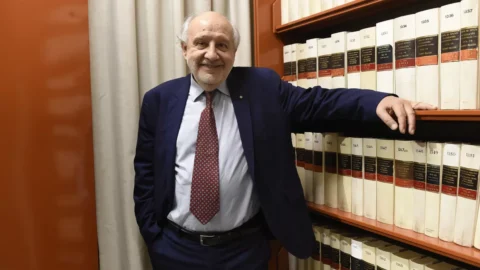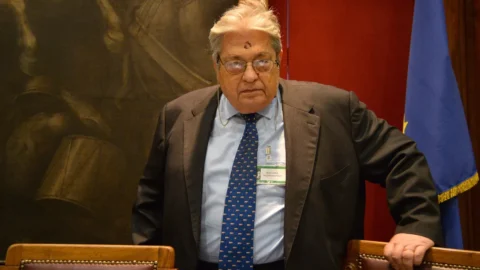“2016 will be a complicated year. Growth, at best, will be in line with that of 2015 and financial instability will continue to keep us company. In the meantime, however, the world is changing, increasing liquidity will transform the ownership structure of the industry and, if we want to make money, we will have to turn to the real economy”. These are the forecasts of the economist Giacomo Vaciago, who – in this interview with FIRSTonline – scrutinizes the current and future global scenarios, also in the light of the rate hike by the Federal Reserve.
FIRSTonline – Professor Vaciago, in 2015 Italy came out of the recession and for the first time in three years it returned to growth, albeit only slightly: what needs to be done in 2016 to accelerate?
VACIAGO – The banking sector that earns the most is that of mergers & acquisitions, because even finance must turn to the real economy to make money. This is the time to redo the supply chains, because the globalized world needs fewer but bigger companies that know how to combine technology and innovation. In this phase engineers and workers go hand in hand. On the other hand, the central bank gives away money and it takes someone who, intelligently, knows how to take it and transform it into products. You cannot earn seriously by financing the shopkeepers of Arezzo.
FIRSTonline – But, in your opinion, could this banking crisis undermine the trust of savers and citizens and negatively affect the economy?
VACIAGO – The saver must certainly be protected more, that is, he must be adequately informed. On the packets of cigarettes it is written in large letters that "smoking seriously damages your health". The same must be done with products such as subordinated bonds, because the saver-investor shares the risk with the bank. This does not happen in Italy and has never happened, not even with Argentine titles, which however yielded a lot. I wrote a children's book on the economy, where I explained that if a stock yields more it is more risky. In the case of the four Italian banks, in reality it could not be understood seriously even from the yield, because the conditions were too favorable for them. As regards the solution found by the Government, I would say that it is the least worst, that is the bad bank. The problem, if anything, is that the Government hadn't noticed anything before, while the Bank of Italy has been trying to explain the situation for eight years. Now they will appoint a commission of inquiry which, to understand, will only have to read the reports of the hearings in Parliament, finally someone will do it.
FIRSTonline – But even Europe hasn't been kind to us: don't you think?
VACIAGO – To obtain better conditions, at a European level, it was necessary to move earlier. Merkel and Sarkozy decided in 2010, in Deauville, that the states would no longer bail out the banks, but that in a few years time it would be the shareholders, bondholders and unprotected account holders who would do so. It took 6 years, during which Greece and Spain, for example, moved in, went to Brussels cap in hand, and got money for their banks. We too have contributed to the rescue of Hellenic and Iberian institutions. Italy, on the other hand, slept and now it's late. I believe that Palazzo Chigi, rather than not noticing the conflict of interest, didn't notice what was happening in the banking sector, it didn't hear the warnings of the Bank of Italy.
FIRSTonline – A rather depressing picture…
VACIAGO – But Renzi did well on other fronts. In particular, he has been able to relaunch domestic consumption with the ingenious idea of 80 euros. The Italian economy is mainly driven by exports, but the slowdown in China and the emerging countries have reduced growth expectations, as Confindustria said in recent days. Yet it will be a less sad Christmas thanks to this wave of optimism and the recovery in consumption.
FIRSTonline – However, exports remain crucial for our economy: paradoxically, could the strengthening of the dollar have a negative impact on our exports if the American locomotive no longer drove them?
VACIAGO – Yes, there is a risk in this sense. Consider, among other things, that while the euro weakens, so do the other currencies, so the euro still remains strong compared to many other currencies
FIRSTonline- Markets welcomed the Federal Reserve's soft rate hike, but didn't Yellen wait too long? Isn't there a risk of cooling down the American economy, which seems to risk a downturn, with repercussions on Europe?
VACIAGO - The decision was widely expected and the most important thing is that in the next two years there will be a gradual "return to normality". The policy that began on December 16, 2008, after the bankruptcy of Lehman Brothers, ended on December 16, 2015. In three weeks we will be able to read the minutes of the meeting of the other day and we will understand much better what awaits us. Surely Yellen was Obama's political choice, a dove more attentive to unemployment than to inflation. On the other hand, deflation greatly reduces the role of central banks and America is no longer the navel of the world.





